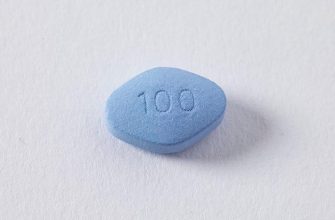Need information on Levothyroxine 125 mcg tablets? This guide provides clear, concise details to help you understand this medication better. We’ll cover key aspects including proper usage, potential side effects, and important precautions.
Dosage is crucial. Always adhere strictly to your doctor’s prescribed dosage. Never adjust your intake without consulting them. Taking more or less than directed can significantly impact thyroid hormone levels, leading to potential complications.
Consistency is key. Take your Levothyroxine tablet at the same time each day, ideally on an empty stomach, at least 30 minutes before breakfast. This ensures consistent absorption and helps maintain stable hormone levels.
Be aware of potential side effects, which can include weight changes, palpitations, or sleep disturbances. Report any concerning symptoms to your physician immediately. They can adjust your dosage or suggest alternative treatment options if necessary. Regular blood tests monitor your thyroid levels and ensure the medication is working effectively.
Remember, this information is for guidance only and doesn’t substitute professional medical advice. Always discuss your treatment plan with your doctor or pharmacist before making any changes to your medication routine. They are your best resource for personalized care.
- Levothyroxine 125 mcg Tablet: A Detailed Guide
- Understanding Your Dosage
- Potential Side Effects and Precautions
- Long-Term Management
- Understanding Levothyroxine 125 mcg
- Dosage and Administration
- Taking Your Medication
- Dose Adjustments
- Potential Side Effects and Precautions
- Common Side Effects
- Precautions
- Severe Side Effects
- Monitoring Treatment Effectiveness
- Lifestyle Considerations and Management
- Diet and Nutrition
- Exercise and Physical Activity
- Monitoring and Follow-up
- Medication Interactions
- Lifestyle Changes and Adjustments
- When to Consult Your Doctor
- Concerning Symptoms Requiring Immediate Attention
- When to Schedule a Follow-Up
- Remember:
Levothyroxine 125 mcg Tablet: A Detailed Guide
Take your Levothyroxine tablet on an empty stomach, at least 30-60 minutes before breakfast, to ensure optimal absorption. This timing maximizes the medication’s effectiveness.
Understanding Your Dosage
A 125 mcg dose is common, but your doctor tailored it to your specific needs. Regular blood tests monitor your thyroid hormone levels, guiding dosage adjustments as necessary. Consistent intake is vital; don’t miss doses. If you do, take it as soon as you remember unless it’s nearly time for your next dose. Never double up on doses.
Potential Side Effects and Precautions
Common side effects include headache, weight changes, and changes in bowel habits. Inform your doctor about any new or worsening symptoms. Certain medications can interact with Levothyroxine. Discuss all medications, including over-the-counter drugs and supplements, with your doctor or pharmacist to avoid interactions. Pregnancy or breastfeeding requires close monitoring, so inform your healthcare provider.
Long-Term Management
Maintaining consistent thyroid levels requires regular follow-up appointments with your doctor. Be sure to keep track of how you feel to report any changes to your physician. Lifestyle choices like diet and exercise play a supporting role in overall health, but they don’t replace Levothyroxine treatment.
Understanding Levothyroxine 125 mcg
Take Levothyroxine 125 mcg exactly as prescribed by your doctor. Consistency is key for optimal results. Take it on an empty stomach, at least 30 minutes before eating or drinking anything other than plain water.
This dosage is relatively high, so regular blood tests are crucial to monitor your thyroid hormone levels (TSH, T3, and T4). Your doctor will adjust the dosage based on these results. Expect these tests approximately every 6-8 weeks initially, then potentially less frequently once your dosage is stable. Don’t adjust your dosage without consulting your physician.
Common side effects might include changes in weight, heart rate, or sleep patterns. More serious side effects are rare, but promptly report any unexpected symptoms to your doctor. These might include chest pain, rapid or irregular heartbeat, tremors, or muscle weakness.
Be aware of potential drug interactions. Some medications, like calcium supplements or antacids, can interfere with Levothyroxine absorption. Maintain a consistent time gap between taking your Levothyroxine and other medications. Discuss all your medications, including over-the-counter drugs and supplements, with your doctor or pharmacist.
| Medication Interaction | Effect on Levothyroxine | Recommendation |
|---|---|---|
| Calcium supplements | Reduced absorption | Separate intake by at least 4 hours |
| Antacids | Reduced absorption | Separate intake by at least 4 hours |
| Soy products | Reduced absorption | Avoid consuming soy products close to taking your medication |
Maintain a consistent diet and lifestyle. Regular exercise and a balanced diet contribute to overall well-being and can support the effectiveness of your medication. Avoid sudden changes in your routine, including diet and exercise, especially while adjusting to your Levothyroxine dosage.
Remember, this information is for educational purposes only and does not replace professional medical advice. Always consult your doctor or pharmacist for personalized guidance.
Dosage and Administration
Your doctor will determine the correct dose of levothyroxine, typically starting with a lower dose and adjusting it based on your individual needs and response to treatment. Common starting doses range from 25 mcg to 50 mcg daily. The 125 mcg tablet is a higher dose, usually prescribed for individuals requiring a larger amount of hormone replacement.
Taking Your Medication
Swallow the tablet whole with a full glass of water, preferably on an empty stomach, at least 30-60 minutes before breakfast. Avoid taking it with calcium supplements, iron, or antacids, as these can interfere with absorption. Consistency is key; take your levothyroxine at the same time each day to maintain consistent blood levels. Inform your doctor immediately if you experience any significant side effects.
Dose Adjustments
Your doctor will monitor your thyroid hormone levels through blood tests. Based on these results, your dosage may need to be adjusted. Never change your dosage without consulting your doctor. Regular monitoring ensures optimal thyroid hormone levels and treatment success.
Potential Side Effects and Precautions
Levothyroxine, while generally safe and effective, can cause side effects. These vary in severity and frequency. Knowing what to watch for is key to managing your treatment effectively.
Common Side Effects
- Headaches: These are relatively common. If headaches are severe or persistent, contact your doctor.
- Changes in weight: Weight loss or gain can occur. Monitor your weight and discuss any significant changes with your physician.
- Insomnia or changes in sleep patterns: Difficulty sleeping or changes in your sleep cycle may occur. Adjusting your dosage timing might help; discuss this with your doctor.
- Increased heart rate or palpitations: Feelings of a rapid heartbeat or fluttering in your chest are possible. Report this immediately.
- Changes in menstrual cycles: Women may experience alterations in their periods. This warrants discussion with your doctor.
These are not all possible side effects. Consult your physician for a complete list.
Precautions
- Dosage adjustments: Your doctor will carefully adjust your dosage based on your individual needs and regular blood tests. Never alter your dose without their guidance.
- Timing of medication intake: Taking levothyroxine on an empty stomach, typically 30-60 minutes before breakfast, improves absorption. Consistency is crucial.
- Interactions with other medications: Several medications can interact with levothyroxine. Inform your doctor of all medications, supplements, and herbal remedies you’re taking.
- Pregnancy and breastfeeding: If you are pregnant, breastfeeding, or planning to become pregnant, discuss levothyroxine use with your physician. Dosage adjustments might be necessary.
- Regular monitoring: Your doctor will monitor your thyroid hormone levels through regular blood tests. This ensures the correct dosage and effectiveness of the medication.
Severe Side Effects
Seek immediate medical attention if you experience symptoms such as chest pain, severe shortness of breath, or allergic reactions (rash, itching, swelling).
Remember, open communication with your doctor is key to successful management of your levothyroxine treatment. Don’t hesitate to discuss any concerns you may have.
Monitoring Treatment Effectiveness
Regular blood tests are key. Your doctor will schedule Thyroid Stimulating Hormone (TSH) level checks every 6-8 weeks initially, then possibly less frequently once your dosage is stable. Target TSH levels are usually between 0.5 and 2.0 mIU/L, but this can vary depending on individual needs and preferences.
Pay close attention to your symptoms. Note any changes in your energy levels, weight, mood, or bowel habits. Report any significant shifts to your doctor immediately. Consistent tracking helps personalize your treatment.
Maintain open communication with your physician. Don’t hesitate to discuss any concerns or questions you have about your medication or symptoms. Regular communication facilitates adjustments to your treatment plan as needed.
Consider keeping a journal. Record your daily medication intake, blood test results, and any symptom fluctuations. This detailed record allows you and your doctor to identify trends and make informed decisions regarding treatment adjustments. A consistent record aids in long-term management.
Remember, individual responses to Levothyroxine vary. What works for one person may not work for another. The goal is to find the optimal dose that maintains your TSH within the target range and alleviates your hypothyroidism symptoms.
Lifestyle Considerations and Management
Maintain a consistent medication schedule. Take your Levothyroxine at the same time each day, preferably on an empty stomach, at least 30-60 minutes before breakfast. This promotes consistent absorption.
Diet and Nutrition
Consume a balanced diet rich in iodine. Iodine deficiency can interfere with thyroid hormone production. Foods like iodized salt, seafood, and dairy products provide iodine. Avoid large amounts of soy products, cruciferous vegetables (like broccoli and cabbage) and high-fiber foods, as these can impair absorption.
Exercise and Physical Activity
Regular exercise is beneficial for overall health, including thyroid health. Aim for at least 30 minutes of moderate-intensity exercise most days of the week. Consult your doctor before starting a new exercise program.
Monitoring and Follow-up
Regular blood tests to monitor your TSH (thyroid-stimulating hormone) levels are crucial. These tests help your doctor adjust your Levothyroxine dosage as needed to ensure optimal thyroid function. Schedule follow-up appointments as recommended by your physician.
Medication Interactions
Inform your doctor and pharmacist about all other medications, supplements, and herbal remedies you are taking. Some medications can interact with Levothyroxine, affecting its absorption or effectiveness. This includes calcium and iron supplements. Allow sufficient time between taking Levothyroxine and these other medications.
Lifestyle Changes and Adjustments
Adjustments to your lifestyle may be needed based on your response to Levothyroxine. Listen to your body and communicate any changes in symptoms, such as weight gain or loss, fatigue, or mood swings, to your doctor promptly.
When to Consult Your Doctor
Schedule an appointment immediately if you experience any significant changes in your health after starting Levothyroxine 125 mcg.
Concerning Symptoms Requiring Immediate Attention
- Chest pain or tightness.
- Rapid or irregular heartbeat (palpitations).
- Severe headaches.
- Seizures.
- Muscle weakness or tremors.
- Significant weight changes (gain or loss).
- Changes in bowel habits (constipation or diarrhea).
- Difficulty sleeping (insomnia) or excessive sleepiness.
- Anxiety or irritability.
- Changes in menstrual cycle (for women).
These symptoms could indicate an adverse reaction or that your dosage needs adjustment.
When to Schedule a Follow-Up
- Within 6-8 weeks of starting Levothyroxine: Your doctor will likely want to check your thyroid stimulating hormone (TSH) levels to ensure the medication is working effectively. This initial check is vital for dosage optimization.
- If symptoms persist or worsen: Even if your TSH levels are within the target range, don’t hesitate to contact your doctor if you continue to experience symptoms. Adjustments to medication or other treatment might be needed.
- Before making any significant lifestyle changes: Diet and exercise significantly affect thyroid function. Consult your doctor before starting a new diet or intense exercise regimen.
- If you’re considering pregnancy: Levothyroxine dosage might require adjustments during pregnancy. Discuss your plans with your doctor well in advance.
- If you are taking other medications: Some medications can interact with Levothyroxine. Inform your physician about all the medications and supplements you take, including over-the-counter drugs.
Remember:
Regular monitoring is crucial for managing hypothyroidism effectively. Don’t hesitate to communicate any concerns you have with your doctor. Your healthcare provider is your best resource for managing your thyroid health.








